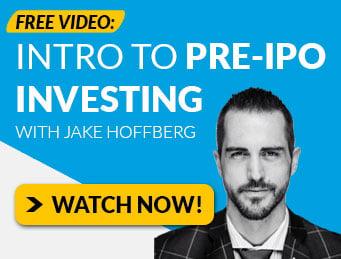While everyone else is talking about the Fitch downgrade of U.S. credit ratings, LK-99, and the latest Trump indictment…
Here’s the story you haven’t been hearing about: Private-equity and hedge funds are bracing for what could be the biggest regulatory challenge in years to their business of managing money for deep-pocketed investors.
The SEC’s proposed overhaul would require private funds to provide investors with quarterly statements and annual audits, increase their liability for mismanagement or negligence, and prohibit them from giving some investors more-favorable terms than others.
Why should you care? Because as more of these private equity giants seek to launch retail-oriented investment products, the issues around transparency and reporting will likely become the “Hard Problem to Solve” in cracking the $81T retail investor market (very high net worth, high net worth, and mass affluent in the chart below).

This vast, untapped market has become increasingly attractive to alternative asset managers seeking to sustain double-digit growth even as the industry matures.
The reverse is also true: Wealthy individuals (not to mention their advisers) are increasingly drawn to alternative investments as they look for new diversification options and better returns than they can get in the traditional markets for public equity and debt.
Consequently, the push to open access to more retail capital has become a high priority for some of the industry’s largest funds, many of which have set explicit ambitions for boosting individual investor AUM.
Blackstone sees potential to expand retail capital from $200 billion to $500 billion, KKR expects between 30% and 50% of new capital raised over the next few years to come from the private wealth channel, and Apollo seeks to raise $50 billion in retail capital cumulatively from 2022 through 2026.
And with this in mind, let’s segue into Part 2 of the “Underwriting and Due Diligence” series (go here to read Part 1).
-Equifund Publishing
The Five Problems Retail Investors Have in Private Markets: Access, Underwriting, Check Size, Liquidity, and Fees
In today’s markets, we are seeing unprecedented demand for better returns with 1-in-5 investors aged 85 or older having nearly all their money in stocks.

For investors searching for better returns, there’s no shortage of evidence that suggests private markets outperform public markets.
According to Hamilton Lanes 2023 Market Overview, private market strategies have consistently outperformed public markets over the last 15 years (with one exception, REITS).

Private assets under management are highly concentrated in pension funds and other institutions that invest through private equity partnerships.
But while individuals account for just 16% of such assets globally, they hold roughly 50% of global wealth.
About 38% of high-net-worth individuals and 53% of very-high-net-worth individuals would like to increase their allocation of private alternative assets.
They’re looking for greater diversification, and some have noticed family offices allocating a greater share of portfolios to private assets.

While this asset class has historically been proven to outperform, it represents an entirely new frontier for many individual investors…
But as usual, the devil is always in the details.
Most notably, the detail most often ignored by investors is the dispersion of returns – the degree of variability or spread in investment returns across different assets or investments – within private market strategies.
In turn, this range serves as a useful proxy for uncertainty and risk in the expected performance of an asset class.

While you’ve no doubt heard about the extraordinary returns of certain venture capital and private equity firms…
There is a major difference between the median performance across all funds in a specific strategy, compared to the significant range between the top and bottom.
And this begins the rather challenging sequence of problems retail investors have in private markets.
When we started to look at this market, I ran an RIA in Sarasota, Florida, five or six years ago and we serviced 200 advisors. Underneath that umbrella, we had bottom-up demand from our clients that was kind of the country club conversation.
You know, “Hey, my friend’s getting access to private deals in real estate or private equity or private credit. How can we get those?”
It was a challenge for us to be able to offer that as a platform provider, and offer that to the advisors that were on our platform.
If you had half a million dollars to invest in private equity, your private equity sleeve, you could maybe get two managers or maybe three kind[s] of investments in that. We looked at that as a bit of a hurdle. The other hurdle that was prevalent in the marketplace was just the time and effort that it would take to get into these private investments.
Most advisors just don’t have the right access. They’re not a member of the club.
As a platform provider for a $6 billion platform, we weren’t in the club, so we couldn’t get access to that.
Even if we could get access to it, it was fairly difficult to understand which of the 3,000 funds that are out there that you really wanted to get access to.
This problem is exacerbated in the retail channel, as the industry has historically done little to create the distribution and marketing infrastructure required to service lower-dollar clientele.
However, that’s beginning to change as an ecosystem of intermediaries – like Equifund – continues to educate investment advisors, institutional investors, and retail investors on how alternatives work (and how they may fit into a broader portfolio strategy).
Generally speaking, we can group all the problems retail investors face in private markets into five categories.
- Access: Getting access to the top funds is already hard for professional investors with hundreds of millions of dollars under management. You – the average retail investor – have almost no chance of getting invited into the “club.”
- Underwriting: Even if you did have access, you likely don’t have the time or resources required to perform any substantive due diligence.
- Check Size: Even if you did have access and could underwrite the deal, you likely don’t have enough money to meet the minimums (or if you do, it’s likely all the money you have)
- Liquidity: Even if you could get your money in a deal, most retail investors don’t want to get locked up for 7-10+ years.
- Fees: If you are investing through fund vehicles, fees over the life of the fund can seriously eat into returns. In order to produce a 15% net-of-fee return, an investor in a fund vehicle needs to have the manager produce a gross-of-fee return of 22-24%+ (depending on fee structure).
All said and done, this does not paint a favorable proposition for retail investors looking to diversify into private markets on their own.
For this reason, it’s highly likely that retail investors will rely on some sort of relationship with an intermediary/promoter/advisor of some sort to “introduce” them to the types of investment opportunities they are looking for.
This means for retail investors looking for ways to build generational wealth, generally speaking, they are required to make a choice…
- Accept the Default (Passive Investing): Dollar cost average into a low-cost index fund. Simply buy and hold and let compounding do the rest. This style of investing – made famous by Jack Bogle at Vanguard – appears to be the lowest “effort to results” strategy available to retail investors.
- Reject the Default (Active Investing): Take on higher risk for the chance of higher return.
Statistically speaking, most investors have little chance of consistently outperforming the “low-cost passive investing strategy” over time with any form of individual stock picking and/or short-term trading strategies (although that doesn’t stop many of us from trying to get rich with penny stocks and options).
Fun Fact: When Alfred W. Jones coined the term “hedge fund” for his new investment vehicle in 1949 he was playing on the appeal of a lower risk, or hedged, long-short equity strategy.
S&P’s figures indicate that investors now are getting the reverse – more risk, higher fees, and a lower, risk-adjusted return than their unhedged benchmarks (i.e., less Alpha and more Beta).
Here is the data from S&P’s mid-year 2022 comparison of risk-adjusted returns of active funds and their benchmarks for the last 20 years (with a notable showing from Real Estate and Large Cap Value funds).

To add insult to injury, many of these funds charge the standard “2 and 20” fee structure, further robbing investors of any potential returns (not to mention another .5%-1.5% in annual fees, if you have a financial advisor managing that selection on your behalf).
So what Reject the Default options does that leave for the average retail investor? Generally speaking, four choices:
- Entrepreneurship: Buy (or build) an operating company and build wealth as a small business owner.
Statistically speaking, owning an operating business is a cornerstone of wealth creation.

We’ve written several articles on how family offices build wealth through ownership of operating companies.
For more on this strategy, go here and here.
[note: technically speaking, when you own rental property, you also own an operating business called “being a landlord,” or otherwise have to hire someone to manage that property on your behalf]
- “Junk” grade private investments with no real underwriting: Whatever “opportunity” you’re looking at is likely so high risk and speculative, that no institutional investor would ever touch it as it’s too difficult to underwrite.
I would lump substantially all digital assets (i.e., crypto/NFT) and whatever form of angel/early stage investing you have access to into this category (i.e., the vast majority of crowdfunding portals, especially those that offer SAFE notes instead of priced rounds).
Why? Because anything that would have “real” underwriting typically gets sucked up into the institutional channel, and kept away from retail until much later in the corporate growth cycle (if ever).
This brings us to the most recent innovation in private markets…
- Semi-Liquid Private Funds (Evergreen Funds): Thanks to a variety of advancements in the broader “Retailization of Private Markets” trend, we’re starting to see more “institutional-grade” private capital strategies hit the markets that are specifically designed for the growing demand from retail investors (for example, the Blackstone REIT).
This third category is of particular interest to Private Capital Insider, as it represents probably the most significant expansion to retail participation in private market products.
However, the large majority of these products are credit- or real estate-oriented, rather than equity-oriented.
In addition, this asset class is currently dominated by a few large players; In 2022, over 50% of assets under management in these types of vehicles were concentrated in three managers.

While we applaud the innovations in publicly listed private-equity strategies, there are still several unsolved problems with these types of products – most notably, the redemption issues we’ve seen with the Blackstone REIT – that still make this challenging for retail participation.

Managing the liquidity needs of individual investors will inevitably require more trial and error by [General Partners].
It will also mean building new capabilities in areas wholly unfamiliar (if not anathema) to most private equity firms: public relations, customer service, and traditional forms of marketing to a mass audience.
To a large degree, individuals will simply have to learn that investing in relatively illiquid assets necessarily comes with its own set of risks, rewards, and restrictions.
But the communication and education challenge this poses for funds—not to mention the investment it involves—can’t be underestimated.
Last but most certainly not least…
- Syndication Programs & “Chaperoned Access”: co-invest directly into underwritten private offerings, alongside other sophisticated investors.
In case you missed it, Part 1 of this series is all about syndication programs…
But let’s talk more about the concept of Chaperoned Access and how it relates to expanding retail access to private markets.
The Asset Management Advisory Committee (“AMAC”) – formed on Oct 9, 2019 to provide the SEC with diverse perspectives on asset management and related advice and recommendations – established a subcommittee to review retail investors’ access to private investments (called the “PI Subcommittee”).
In their September 27th, 2021 report, we find one of the AMAC’s suggestions particularly interesting:
We recommend that the SEC limit retail access to private investments to those which have certain types of third-party participation. We refer to this Design Principle as “chaperoned access.”
We believe that chaperoned access will ensure that retail investors only invest in private investments that balance risk, returns, and appropriate fees.
Another way to achieve chaperoned access could be to require any private investment that retail investors have access to also have material participation in the fund or investment from more sophisticated institutional investors on substantially the same terms on the basis that such institutional investors would have carefully considered the risk and potential returns of the investment and the appropriateness of the fees being charged.
Ironically, in many ways, this could mean the primary barrier to “mass adoption” from retail investors in exempt securities offering – like Reg-A and Reg-CF – is adoption from institutional investors.
While we haven’t cracked that code (yet) here at Equifund, this is the reason we put such an emphasis on not just our investor education material through Private Capital Insider…
But the quality of our underwriting (with respect to the information provided as part of each offering).





